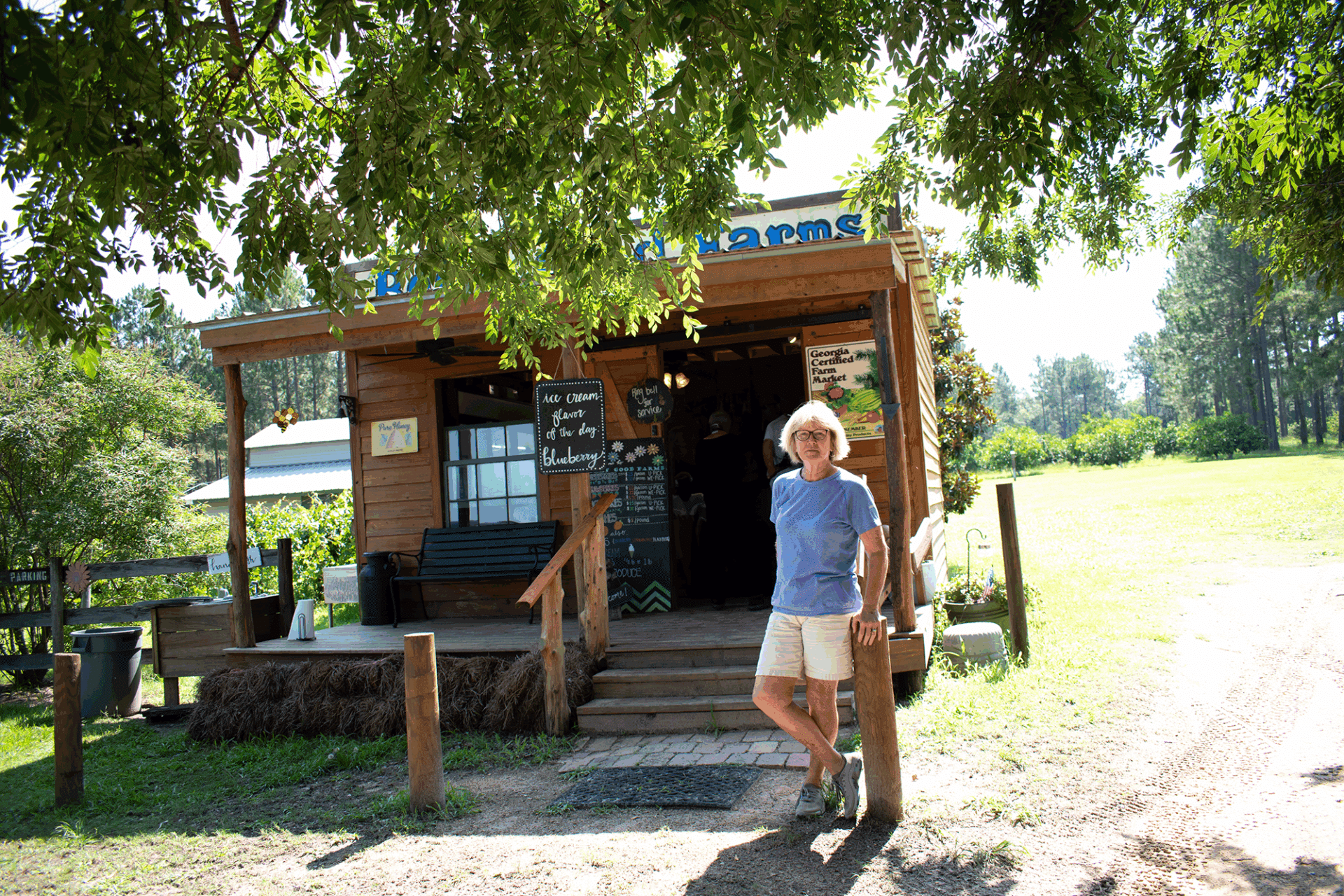
By Kayla Stroud, Communications and Events Specialist
The Georgia Agricultural Wellness Alliance was established in response to the prevalence of mental health challenges experienced by farm families and communities, which was revealed, in large part, through a joint study conducted by Mercer University School of Medicine’s Georgia Rural Health Innovation Center, the Georgia Foundation for Agriculture and students in the School of Medicine’s Rural Health Sciences Ph.D. program. GAWA’s focus is all of Georgia’s farming communities. In this issue of For Rural, we spotlight Berry Good Farm in Tift County.
Berry Good Farm, a family-owned u-pick fruit farm, sits on 13.5 acres in Tift County. Owners Pat Welker and her husband, Bob, tend to their land filled with blueberries, blackberries, peaches and more — all grown with a commitment to hard work, sustainability and community.
The couple opened the farm in 2009 after exploring ways to utilize the extra space on their land.
“My husband was just looking around, trying to figure out something to do,” Welker said. “We were trying to think what we could do with what we had. So my husband built the whole thing. He put the irrigation in from the ground up. He did all the beds, everything.”
The farm offers seasonal favorites, including blueberries that peak in June, peaches in August and Fuyu persimmons in the fall.
Welker said the farm’s fruits are especially popular, with visitors often picking them by the bucketful. She noted they are a customer favorite at Atlanta farmers markets, where sales are strong.
Berry Good Farm emphasizes healthy, sustainable farming practices.
Welker said the farm avoids using harsh chemicals or synthetic substances, opting instead for organic-approved materials and methods. While Berry Good Farm is not certified organic, she emphasized that its growing practices prioritize health and sustainability.
Welker, who serves on her local tourism board, takes pride in the role her farm plays in attracting visitors to the area.
“We like the idea of it bringing visitors to Tifton,” Welker said. “They buy gas, food and visit other places. It’s important for the community. They can come here and get some good, healthy food and then leave to enjoy our great little community.”
Welker said the most rewarding part of the work is seeing families return each year.
“One guy said, ‘This is my sixth Father’s Day in a row coming here,’” Welker said. “We have met so many people here. They love the fresh fruit. People come out here and they think they don’t even like certain fruits, but they’ll try out fresh ones.”
When asked what keeps her going, Welker’s answer was simple: “We love it. I love gardening. I love being outdoors.”
She has one piece of advice for aspiring farmers: “Use your resources, talk to other farmers, your county and state resources, your state offices. They’re there to help you.”
As muscadine and persimmon season nears, Welker is already preparing for another year of nourishing both her land and her community.
“We just appreciate the support of our community,” Welker said. “Without them, we wouldn’t be the business we are today.”
